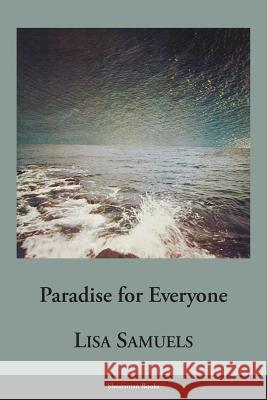Paradise for Everyone » książka
Paradise for Everyone
ISBN-13: 9780907562672 / Angielski / Miękka / 2005 / 96 str.
The poems in "Paradise for Everyone" transact embrained feeling and transform, via belief, possibilities of reference. Here, and here, the person becomes language, and language is an actor fully fleshed, whose words and bodies name and rearrange the poem's conditions. The book's sections are organized to suggest movement, not so much a narrative or progress as a cycling through of events, of compulsion, vision, desire, ruin, multiplicity. Each poem has an ongoing urge to self-difference as it dreams, travels, and exchanges attributes with locales and objects. That urge generates the intermingling of self and word in this particular paradise, language here on earth. Lisa Samuels teaches literature, poetic theory, and creative writing at the University of Wisconsin-Milwaukee. In addition to poetry, she has published essays and edited work on modernist and contemporary writers, on intellectual property issues in the humanities, and on practices of literary criticism.
The poems in "Paradise for Everyone" transact embrained feeling and transform, via belief, possibilities of reference. Here, and here, the person becomes language, and language is an actorfully fleshed, whose words and bodies name and rearrange the poems conditions. The books sections are organized to suggest movement, not so much a narrative or progress as a cycling through of events, of compulsion, vision, desire, ruin, multiplicity. Each poem has an ongoing urge to self-difference as it dreams, travels, and exchanges attributes with locales and objects. That urge generates the intermingling of self and word in this particular paradise, language here on earth.Lisa Samuels teaches literature, poetic theory, and creative writing at the University of Wisconsin-Milwaukee. In addition to poetry, she has published essays and edited work on modernist and contemporary writers, on intellectual property issues in the humanities, and on practices of literary criticism.











